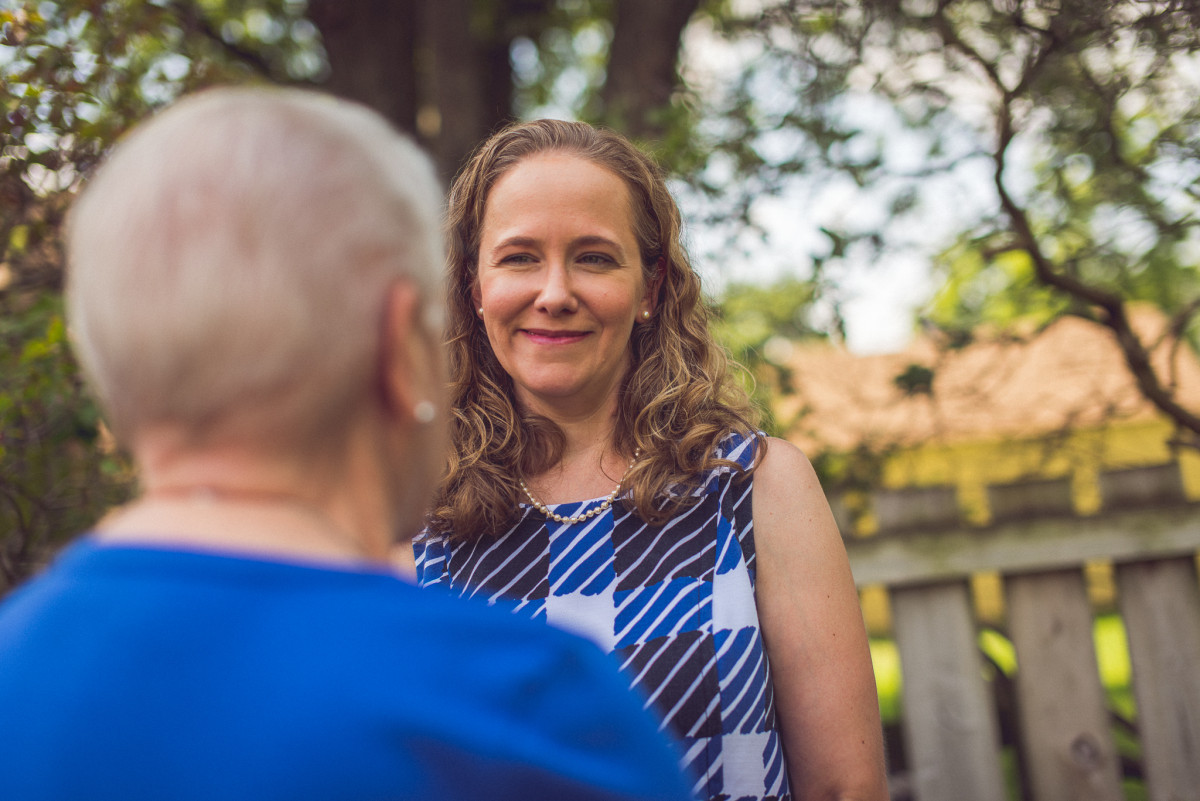Alzheimer’s disease, a progressive neurological condition, affects millions of people worldwide. It presents unique challenges, not only for those living with the condition but also for their families. Providing the best care for someone with Alzheimer’s requires a deep understanding of the disease, patience, and access to the right resources. Among the many options available, senior care home services stand out as an invaluable solution for managing the complexities of Alzheimer’s care.
This blog explores the best approaches to caring for individuals with Alzheimer’s, the role of professional senior care services, and how they ensure the dignity and well-being of patients while supporting families.
Understanding Alzheimer’s and Its Challenges
What Is Alzheimer’s Disease?
Alzheimer’s disease is the most common form of dementia, characterized by a gradual decline in memory, cognitive abilities, and behavioral skills. Over time, individuals with Alzheimer’s may struggle with everyday tasks, lose the ability to communicate effectively, and require 24/7 care.
The Stages of Alzheimer’s
Alzheimer’s progresses in three general stages:
- Early Stage: Mild memory loss and difficulty organizing or managing daily activities.
- Middle Stage: Increased confusion, difficulty recognizing loved ones, and a decline in physical abilities.
- Late Stage: Severe cognitive and physical impairment, requiring full-time care.
Each stage requires tailored care strategies to address the patient’s evolving needs.
Essential Components of Alzheimer’s Care
The best care for Alzheimer’s patients focuses on improving quality of life, maintaining dignity, and ensuring safety. Here are some key components:
1. Creating a Safe Environment
Safety is paramount in Alzheimer’s care. Patients may wander, forget to turn off appliances, or misplace items. Adapting the home with features like grab bars, secure locks, and decluttered spaces can reduce risks.
2. Maintaining a Routine
A structured daily routine helps reduce confusion and anxiety in individuals with Alzheimer’s. Regular schedules for meals, activities, and sleep provide a sense of stability.
3. Providing Cognitive Stimulation
Engaging in activities such as puzzles, music therapy, or simple crafts can help maintain cognitive function and improve mood. Tailoring activities to the individual’s interests is essential for their enjoyment and engagement.
4. Managing Behavioral Changes
Alzheimer’s often leads to behavioral changes, including agitation, aggression, or withdrawal. Caregivers must remain calm, patient, and empathetic, using strategies to redirect attention and de-escalate tense situations.
5. Ensuring Physical Health
Proper nutrition, hydration, and physical activity are vital for Alzheimer’s patients. Regular medical check-ups and medication management help address coexisting health issues.
6. Emotional and Social Support
Alzheimer’s can lead to feelings of isolation and depression. Social interactions, whether through family visits or caregiver companionship, are essential for emotional well-being.
The Role of Senior Care Home Services in Alzheimer’s Care
Caring for someone with Alzheimer’s at home can be overwhelming for families. Professional senior care home services provide the expertise and support needed to ensure the best possible care. Here’s how these services make a difference:
1. Specialized Training and Expertise
Caregivers in senior care home services are trained to manage the unique challenges of Alzheimer’s. They understand the progression of the disease, how to handle behavioral changes, and how to create a safe and supportive environment.
2. Personalized Care Plans
Professional caregivers develop individualized care plans based on the patient’s specific needs, preferences, and stage of the disease. This personalized approach ensures that care is both effective and compassionate.
3. 24/7 Care and Supervision
In the later stages of Alzheimer’s, patients often require round-the-clock care. Senior care home services provide continuous supervision to ensure safety and well-being at all times.
4. Medication Management
Managing medications for Alzheimer’s patients can be complex, especially if they are taking multiple prescriptions. Professional caregivers ensure that medications are administered correctly and on time, reducing the risk of missed doses or adverse interactions.
5. Companionship and Emotional Support
Professional caregivers offer companionship, engaging patients in meaningful activities and conversations. This helps alleviate feelings of loneliness and fosters a sense of connection.
6. Support for Families
Caring for a loved one with Alzheimer’s can be physically and emotionally taxing. Senior care home services provide respite for family caregivers, allowing them to rest and focus on their own well-being while ensuring their loved one is in capable hands.
Benefits of Using Senior Care Home Services for Alzheimer’s
1. Improved Quality of Life
Senior care services focus on enhancing the quality of life for Alzheimer’s patients by addressing their physical, emotional, and social needs. Patients are able to remain in a familiar environment while receiving professional support.
2. Safety and Security
Professional caregivers are trained to anticipate and prevent potential risks, ensuring that the patient’s home is a safe and secure place to live.
3. Consistency and Stability
Caregivers establish routines and build trust with their patients, creating a sense of stability that is crucial for individuals with Alzheimer’s.
4. Early Intervention for Health Issues
Regular monitoring by caregivers ensures that any changes in the patient’s health are detected early, allowing for timely medical intervention.
5. Peace of Mind for Families
Knowing that a loved one is receiving professional care provides families with peace of mind. They can rest assured that their loved one is safe, well-cared-for, and supported.
When to Consider Senior Care Home Services for Alzheimer’s
Families often struggle with deciding when to seek professional care. Some key indicators include:
- Increased Care Needs: If the patient’s needs exceed what the family can provide, professional caregivers can fill the gap.
- Safety Concerns: Frequent falls, wandering, or inability to manage daily tasks safely are clear signs that additional support is needed.
- Family Caregiver Burnout: When family caregivers experience stress, exhaustion, or health issues, it’s time to consider professional assistance.
- Progression of the Disease: As Alzheimer’s advances to the middle or late stages, the need for specialized care becomes more pressing.
Overcoming Common Concerns About Senior Care Services
It’s natural to have reservations about using senior care services. Here are some common concerns and how to address them:
1. Cost
While professional care can seem expensive, it’s often more affordable than nursing homes or assisted living facilities. Many insurance plans and government programs also offer coverage for home care services.
2. Loss of Independence
Home care services are designed to support independence by helping patients live safely and comfortably in their own homes.
3. Trust
Families may worry about trusting a caregiver with their loved one’s care. Choosing a reputable agency and involving the family in the caregiver selection process can build confidence and trust.
Tips for Choosing the Right Senior Care Home Service
Selecting the right service is crucial for ensuring high-quality care. Here’s what to look for:
- Credentials: Ensure the agency is licensed and certified to provide Alzheimer’s care.
- Experience: Look for caregivers with specific training and experience in dementia and Alzheimer’s care.
- Flexibility: Choose a provider that can adapt to the patient’s changing needs.
- References: Read reviews and seek recommendations from other families.
- Compatibility: Find a caregiver who is compatible with your loved one’s personality and preferences.
Final Thoughts
Caring for someone with Alzheimer’s is a journey filled with challenges, but it’s also an opportunity to show love and compassion. Professional senior care home services are an essential resource for navigating this journey, offering the expertise, support, and companionship needed to provide the best care possible.
If you’re considering care options for a loved one with Alzheimer’s, don’t hesitate to explore senior care home services. By doing so, you can ensure their safety, dignity, and quality of life while giving yourself and your family the peace of mind you deserve.




